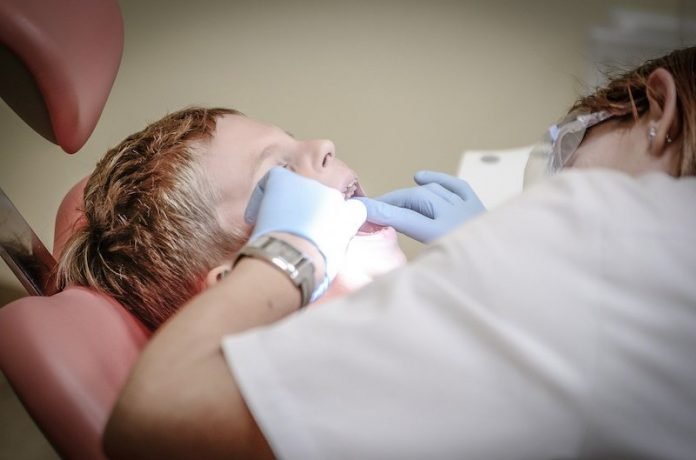
In a recent study at Imperial College London and King’s College London, researchers found that dental procedures can pose a high risk of viral transmission.
This is because the tools that are used often produce aerosols, which can contain high numbers SARS-CoV-2 virions, copies of the virus causing COVID-19.
The researchers suggest changes to prevent contamination in the first place to improve safety for both patients and the dental practice workforce.
The study is published in the Journal of Dental Research. One author is Dr. Antonis Sergis.
The aerosols are generated when saliva mixes with water and air streams used in dental procedures.
As a result, access to routine dentistry continues to be limited during the current COVID-19 pandemic.
Dental practices, which are now back in operation, have had to introduce new room decontamination processes and personal protective equipment measures which have dramatically reduced the number of patients that can be treated in a single day.
In particular, dentists need to leave long intervals between treatments, leaving rooms unoccupied to allow aerosols to dissipate.
This is limiting patient access and challenging financial feasibility for many dental practices worldwide.
In the study, the team found that using air turbine drill types, which are the most common type of dental drill, creates dense clouds of aerosol droplets that spread as fast as 12 meters per second and can quickly contaminate an entire treatment room.
Just one milliliter of saliva from infected patients contains up to 120 million copies of the virus, each having the capacity to infect.
The researchers suggest that dentists avoid using dental drills that use a mixture of air and water as the abrasion coolants, and carefully select and control drill rotation speeds for those instruments that only use water as a coolant.
Parameters have been identified that would allow some procedures such as dental fillings to be provided whilst producing 60 times fewer aerosol droplets than conventional instrumentation.
The results are already being included as evidence in guides for dental practices in the UK during the pandemic.
The researchers also note that patients should still not attend dental appointments if they have symptoms of COVID-19.
Copyright © 2021 Knowridge Science Report. All rights reserved.



